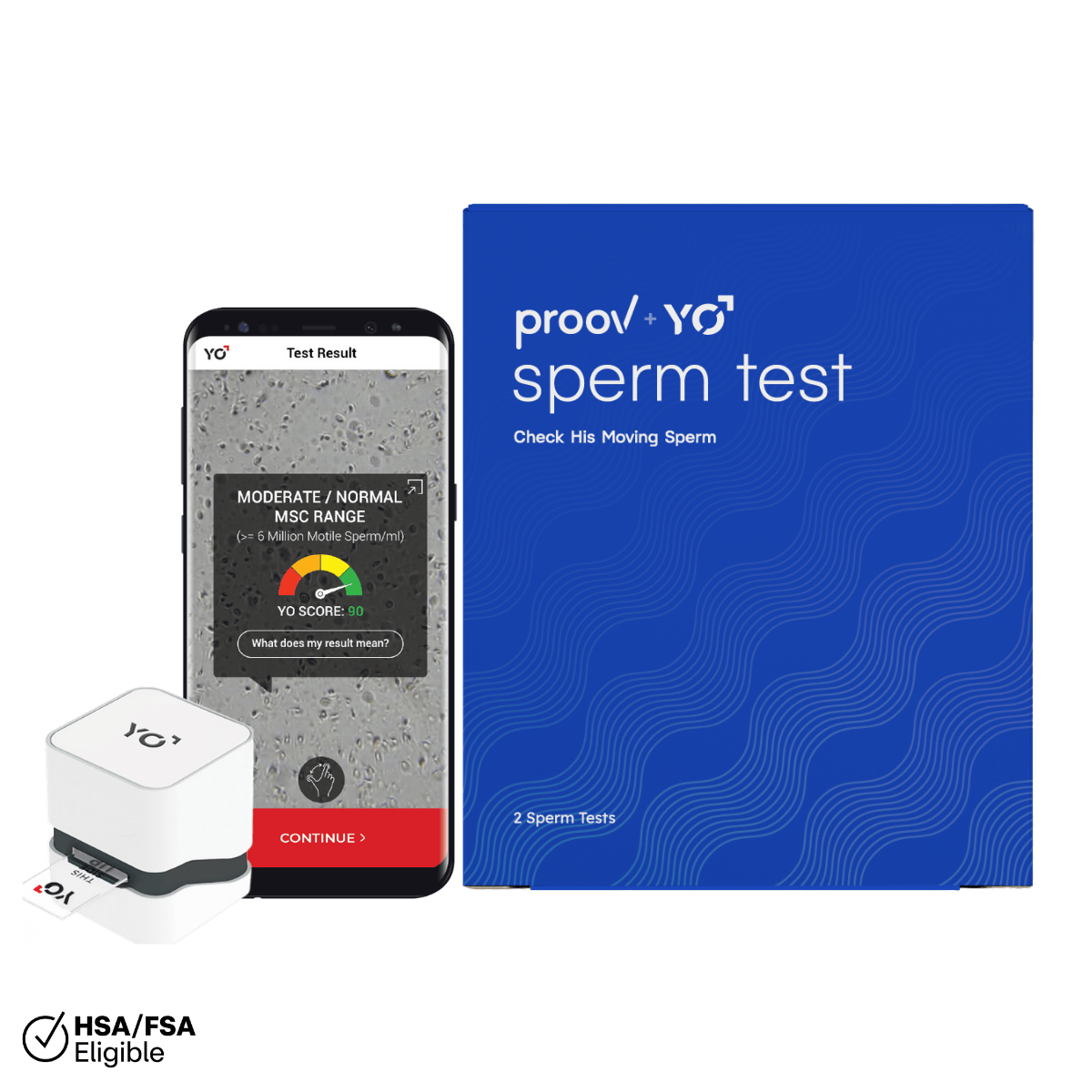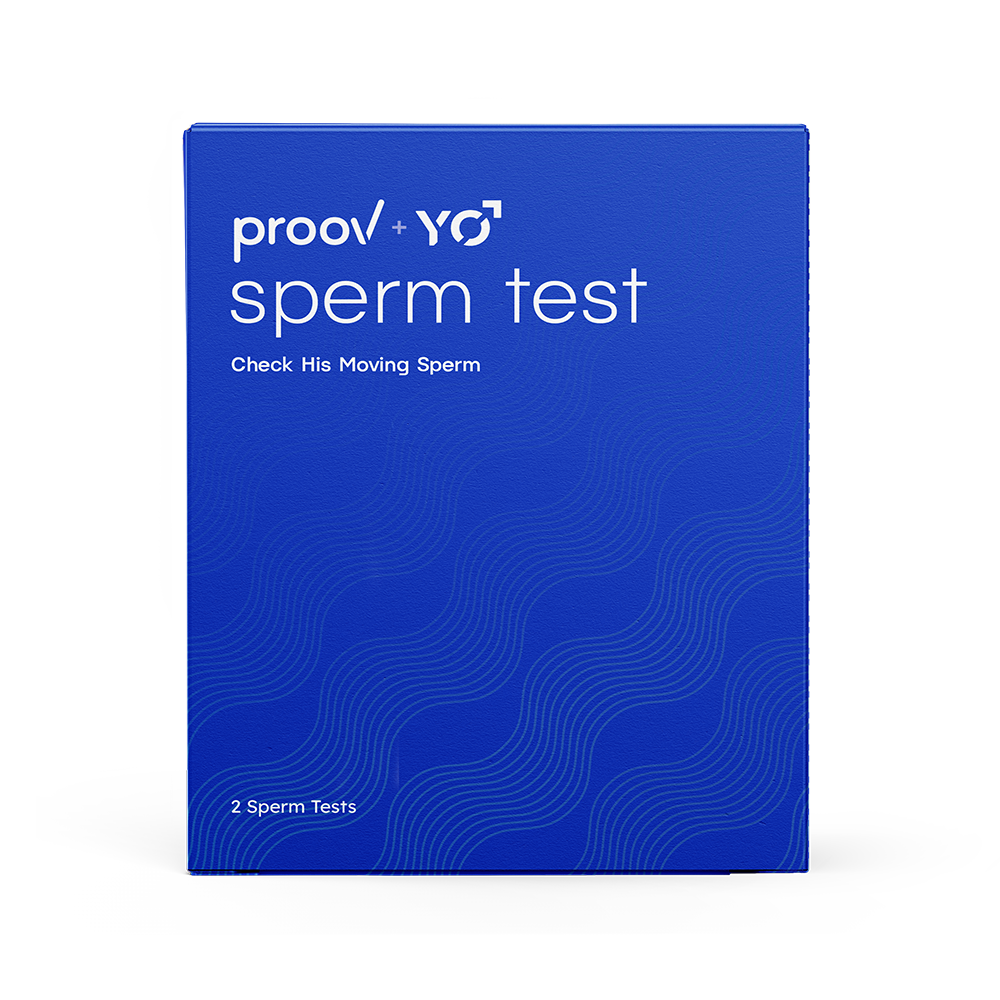Written by: Dr. Amy Beckley, PhD, Founder and Inventor of the Proov test — the first and only FDA-cleared test to check for successful ovulation at home.
Written on 6/29/22

If you're looking for progesterone support, you may be familiar with progesterone suppositories. Keep reading to learn more!
Regardless of where you’re at in life, supporting your fertility hormones is key to a healthy hormone balance. Depending on which of your hormones need a little extra balancing, there is a wide array of potential options.
If you’re looking for progesterone support, a progesterone suppository may be an option your doctor has brought up. Keep reading to learn more about progesterone suppositories and how they can potentially help your hormone health.
What is a progesterone suppository?
A progesterone suppository is a prescription medicine that contains natural progesterone. You do need a prescription from a doctor to get a progesterone suppository.
It may be made especially by your pharmacy to contain the exact amount your doctor recommended, or it may come in different dosages already, anywhere between 50 to 400 mg, depending on the brand and the country you are in.
But what is progesterone? Apart from it being our favorite hormone (you probably already know that if you’ve been following us!), progesterone is one of the most important reproductive hormones.
It is released by your ovaries after ovulation, during the second half of your cycle (also called the luteal phase). Progesterone is supposed to remain elevated until just before your next period, when it drops to allow your period to start, if you haven’t gotten pregnant that cycle.
Progesterone has many roles, and its important to know when to take progesterone suppositories! Here are just a few reasons.
Conception
You need progesterone to get pregnant. While estrogen makes your uterine lining thick during the first half of your cycle to prepare for pregnancy, progesterone adds the final touch.
You want your uterus to be “sticky” so that an embryo may implant — this is where progesterone takes the lead. Uterine receptivity is determined mainly by progesterone (although there are other factors) and one of the main causes of infertility and miscarriage in early pregnancy is the inability of the embryo to stay attached to the uterine lining, due to sub-optimal progesterone levels.
Pregnancy
You need progesterone to stay pregnant. This hormone helps relax your uterus and prevents premature contractions during pregnancy. It also stimulates your mammary glands and prepares them for breastfeeding.
Overall hormone balance
As any other hormone, progesterone plays its part in your overall hormonal balance. When you don’t have enough of it, you may experience more premenstrual (PMS) symptoms, you may spot before your period, and your cycles can become irregular.
The bottom line is that having sufficient progesterone levels is key throughout your life — regardless of if you’re trying to get pregnant or not!
So, "how do progesterone suppositories work?" A vaginal suppository (or a pessary) gets you a supplement of progesterone, and restores your hormonal balance. As we mentioned, progesterone suppositories are prescription only supplements, since they do contain hormones and especially because it is important to understand the correct time to take it.
Progesterone is only produced in the second half of your cycle, so taking it before ovulation may modify your hormonal balance in a negative way and can prevent you from ovulating altogether. If you have specific concerns about a progesterone suppository or when to take one, we always recommend consulting your doctor.

If you have specific concerns about a progesterone suppository or when to take one, we always recommend consulting your doctor.
Why would someone need a progesterone suppository?
Progesterone suppositories are most often prescribed for those with low progesterone levels who are trying to get pregnant. Suppositories are one of — if not not the — most effective progesterone delivery method.
Sometimes, regardless of age, health status, and ovarian reserve, your body may not produce enough progesterone. The good news is that supporting your levels can absolutely help you get and stay pregnant.
Two British studies testify to that, and to the fact that administering progesterone suppositories to women who have experienced an early miscarriage already or who have bleeding in early pregnancy, may avoid 8500 miscarriages a year in the UK alone.
The discovery was so powerful that it triggered a huge change in the British national health system, and an update of the guidelines regarding progesterone prescription. In our opinion, this is awesome!
Even if you are not trying to get pregnant, low progesterone levels may lead to a short luteal phase and can throw your entire cycle out of whack. If your levels are low, you may want to look into correcting them.
If you have concerns about your individual progesterone levels, we recommend consulting your doctor.
Additionally, perimenopause comes with a lot of hormonal challenges and low progesterone is often one of them. Your doctor might decide to put you on hormone replacement therapy (HRT) in order to alleviate your symptoms.
This HRT may include just estrogens, but most likely will include both estrogen and progesterone, depending on your health status and your previous medical history. Again, if you have specific questions or concerns about your unique hormone levels, we recommend consulting your doctor.
How can I tell if I have low progesterone?
The best way to figure out if your progesterone levels are low is — as you probably already guessed — to test them! Your doctor may suggest a progesterone blood test.
While this is a great place to start, it’s important to remember that progesterone levels need to remain elevated over several days during your cycle to allow for a healthy hormone balance and a chance at pregnancy (if that’s your goal).
A single blood test only represents your levels at that one point in time, which doesn’t provide a complete picture as to whether your levels are healthy or not.
To combat this, some doctors may suggest coming in for blood tests several days in a row. While you can do this, getting poked with a needle a few times sounds pretty uncomfortable to us!
Luckily, there’s Proov Confirm — the first at-home PdG test to confirm successful ovulation. PdG is a marker of progesterone found in urine; when progesterone is elevated, PdG will be too.

Proov Confirm is the first at-home PdG test to check for successful ovulation.
Testing your PdG levels with our patented testing protocol will help you check for successful ovulation — i.e. if your levels rose and remained elevated after ovulation. Even better, all Proov Confirm testing is done via urine, meaning you never have to leave the comfort of your bathroom or get pricked by a needle.
Urine PdG testing is a great first step to figuring out if you’re in need of some additional progesterone support. If you have specific concerns, we always recommend consulting your doctor and bringing your PdG test results with you!
While progesterone suppositories are a great option for increasing progesterone levels, they may not be the right option for everyone. Working with your doctor means you can find the right treatment for you (if necessary), faster.













